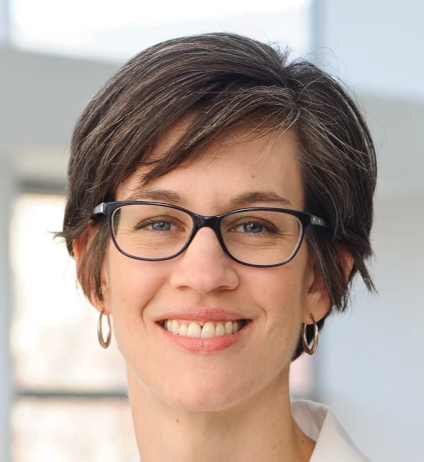
May 09, 2016
 "While children can be a source of joy, conflicting demands on a resident's time may add stress during an already stressful period," said Laura Morris, MD, a primary care physician at MU Health Care's Family Medicine-Callaway Clinic in Fulton, Missouri. She is an assistant professor of clinical family and community medicine at the MU School of Medicine.
"While children can be a source of joy, conflicting demands on a resident's time may add stress during an already stressful period," said Laura Morris, MD, a primary care physician at MU Health Care's Family Medicine-Callaway Clinic in Fulton, Missouri. She is an assistant professor of clinical family and community medicine at the MU School of Medicine.
"The purpose of this study was to gain a better understanding of the experiences and perceptions of parenting residents regarding their roles as parents and physicians. These residents must attempt to balance work roles as learners and clinicians with personal roles as parents and partners, which can result in conflicts that cause both positive and negative outcomes on their families and residency experiences."
"We conducted this study to better understand residents' perceptions of the positive and negative characteristics of their roles as physicians and parents," Morris said.
"Participants described negative residency experiences, such as being required to bounce back and forth between working days and nights, and the uncertainty of when and how to access sick leave. Participants also described feeling guilty for multiple reasons during their residencies, including not being able to offer more support to their spouse."
Opinions expressed by the author are not necessarily those of WITI.
Are you interested in boosting your career, personal development, networking, and giving back? If so, WITI is the place for you! Become a WITI Member and receive exclusive access to attend our WITI members-only events, webinars, online coaching circles, find mentorship opportunities (become a mentor; find a mentor), and more!
There are no WITI online coaching circles scheduled at this time. Please check back soon for updates.
Founded in 1989, WITI (Women in Technology International) is committed to empowering innovators, inspiring future generations and building inclusive cultures, worldwide. WITI is redefining the way women and men collaborate to drive innovation and business growth and is helping corporate partners create and foster gender inclusive cultures. A leading authority of women in technology and business, WITI has been advocating and recognizing women's contributions in the industry for more than 30 years.
The organization delivers leading edge programs and platforms for individuals and companies -- designed to empower professionals, boost competitiveness and cultivate partnerships, globally. WITI’s ecosystem includes more than a million professionals, 60 networks and 300 partners, worldwide.
Empower Innovators.
Inspire Future Generations.
Build Inclusive Cultures.
Building Your Network.
Building Your Brand.
Advancing Your Career.
Comments